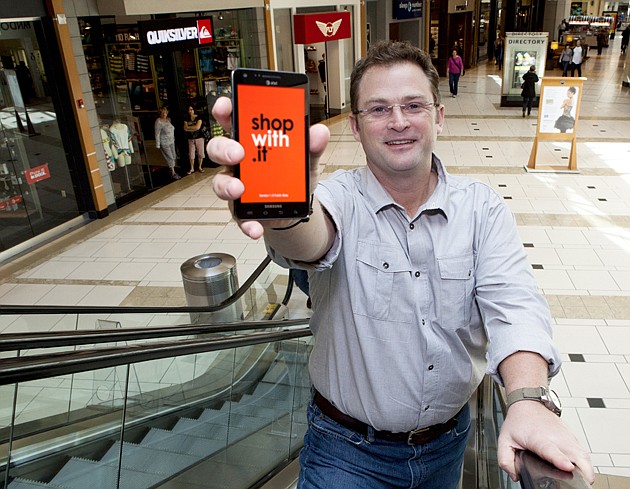- November 24, 2024
-
-
Loading

Loading

The $2.15 billion bailout of the Los Angeles Dodgers isn't the only risky investment Earvin “Magic” Johnson has been involved with in his post-basketball business career.
As a stakeholder of Detroit Venture Partners, a venture capital firm located in the eponymous city, Magic has funded numerous startups. Within the last year, that included Marxent Labs, a St. Petersburg-based mobile application development company.
Brothers Beck Besecker and Barry Besecker, both veterans of the retail marketing world, founded the company in June. CEO Beck Besecker brings the marketing and businesss savvy to the company, while Chief Technology Officer Barry Besecker handles the technical aspects of the firm's products.
Those products make use of a technology called “augmented reality.” A device with this capability, a smart phone in Marxent's case, generates digital images that overlay real environments. For example, Marxent's HomeFX application lets consumers see a 3-D visual of a catalog item on their phones so they can see how it would look in their homes.
Another product, the firm's X-Ray application, displays hidden graphics on the phone when aimed at print media. “We want to make it fun and engaging for the consumer,” Beck Besecker says. “We want to help develop a relationship between the customer and the retailer.”
Marxent also has turned to social media to harness the strength of the customer-retailer relationship to mine for more advertising opportunities. Its ShopWith.It application bridges a retailer's online presence with the world of social media. The application, which companies pay to plug into their existing e-commerce websites, encourages consumers to review products and share them with friends through Facebook, for example.
“(A user) will have friends with the same tastes,” Beck Besecker explains, “so when they share an item on ShopWith.It, the retailer gets exposure to its target audience.”
The one-on-one interaction Marxent espouses is exactly what Beck Besecker has been doing for most of his career. In 1999, Besecker co-founded Copient Technologies Inc., where he developed software that aggregates data collected at checkout kiosks. NCR Corp., an Atlanta-based retail information technology firm that had $5.4 million in annual revenues last year, acquired that company in 2003 to help retailers develop coupon programs and loyalty cards aimed at specific types of consumers. “My whole career has centered around new marketing technology,” Besecker says.
Besecker stayed with NCR for the next three years before taking an executive vice president position at St. Petersburg-based Catalina Marketing Corp. in 2006. Besecker used Catalina's vast collection of consumer data for television and Internet advertising as part of a joint venture with the global marketing firm ACNielson called Nielson Catalina Solutions.
To start Marxent, Besecker and his brother each invested $300,000, nearly matching Detroit Venture Partner's $700,000 infusion, which secured an undisclosed number of shares of Marxent. The biggest challenges to profitability will be encouraging retailers to use the augmented reality technology on catalogs, which are quickly going digital. Marxent published a case study of its X-Ray App to highlight the savings and exposure it unlocked for Moosejaw, a sporting goods retailer.
When a company buys the service from Marxent, it gets a customized application that is required to reveal hidden promotions or graphics in its catalog.
Nearing its first anniversary, the company is still beta-testing ShopWith.It, but Marxent is busy devising new markets for its products.
“Imagine a toy coming to life or a movie poster with a hidden message,” Beck Besecker says. “The possibilities are limitless.”